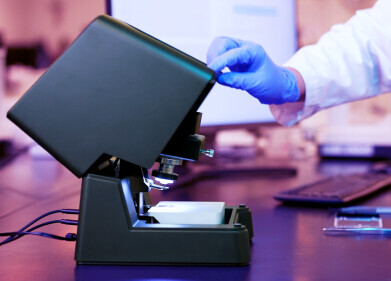Microscopy & Microtechniques
Gene doping could be the next big problem in sport
Aug 29 2012
Despite the Olympic Games in London being one of the cleanest ever in terms or failed drugs tests, scientists are warning the number of athletes cheating could be set to rise over the next few years due to gene doping.
Scientific advances in how DNA works made have been significant over the past ten years and the World Anti-Doping Agency (WADA) believes that gene control will soon take over drugs as a method of boosting athletic performance.
The experts believe that although no genetically modified sports people took place at the recent Olympics, they feel that it is only a matter of time before someone tries to use their laboratory know-how to give an athlete an edge in an Olympics.
"Is gene doping currently being practised? We don't have any evidence that it is," says Professor Steve Harridge, an expert on muscle physiology at King's College London.
"But in the future, as gene-therapy techniques become more refined, it becomes more likely, although I think we are many years away from that.
"The attraction of gene doping is that it is much harder to detect. But there are dangers because you don't know what it is going to keep on doing. The overall control of muscles can be brutally changed by the sudden introduction of a gene.”
Andy Miah, a sports ethicist and director of the Creative Futures Research Centre at the University of the West of Scotland added that the technical feasibility of gene doping remains unproven but it’s likely to be possible.
The issue of gene doping came to the fore in 2004 when Lee Sweeney of the University of Pennsylvania published a study which show it was possible to create genetically modified mice, with 30 per cent more muscle strength than normal.
He has since been inundated with requests from sports people wanting information on the technology.
"One can imagine that with enough money you could put together a programme to genetically engineer your athletes and do it in such a way that it would be totally undetectable unless you were to remove tissue from that athlete," Dr Sweeney told the Independent.
"There would be nothing in the blood, no signature in the blood or urine to indicate that the tissues had been genetically manipulated.”
Digital Edition
International Labmate Buyers' Guide 2024/25
June 2024
Buyers' Guide featuring: Product Listings & Manufacturers Directory Chromatography Articles - Enhancing HPLC Field Service with fast-response, non-invasive flowmeters - Digital transformatio...
View all digital editions
Events
Jul 03 2024 Gandhinagar, India
Jul 07 2024 Dublin, Ireland
Jul 20 2024 Denver, CO, USA
Jul 21 2024 Cape Town, South Africa
Jul 28 2024 San Diego, CA USA


















